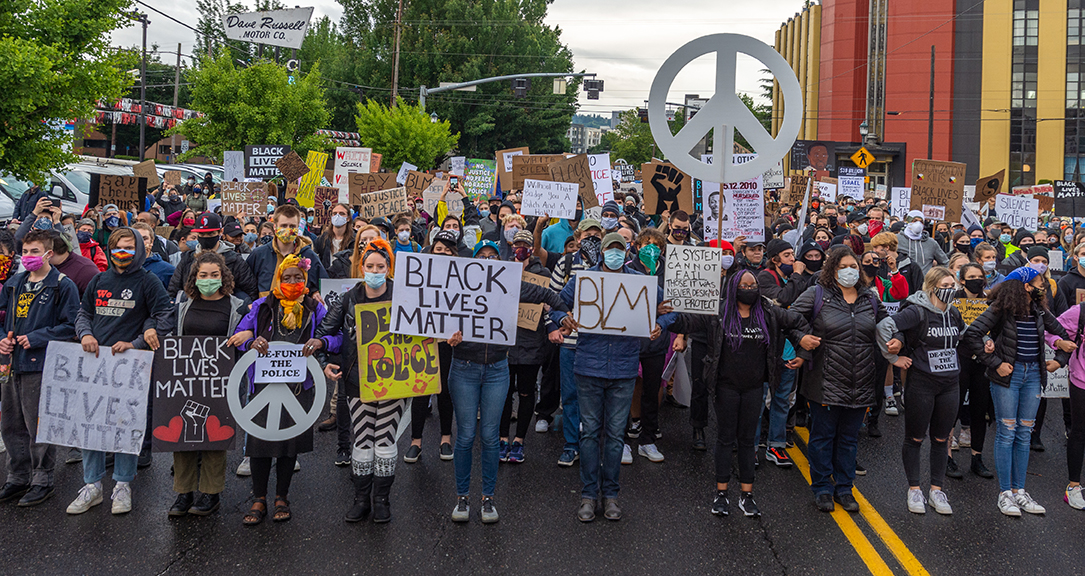On Tuesday, June 7, during our Manitou Springs City Council meeting, Mayor John Graham stated that Juneteenth and Pride Month celebrations equated to “reverse discrimination.” He stated, “I would be happy to do a proclamation about (how) everyone is equal regardless of ethnicity, religion, sexual preference, and so forth.”
When we see things as equal, we are promoting the erasure of the Black experience, history and the horrific enslavement that has led to where Black people exist today.
The Children of Gaia recognize the error in this communication. It does not account for the historic and current injustices people of color and the LGBTQI+ face in this nation. This statement denies the impact of systemic racism, the battles that BIPOC and LGBTQI+ people continue to face, and does not represent the community he has been elected to represent.
Institutional racism, also known as systemic racism, is a form of racism that is embedded in the laws and regulations of a society or an organization. African Americans, Latinos and Native Americans are disproportionately affected by systemic racism.
Systemic racism creates disparities in myriad “success indicators,” including wealth, the criminal justice system, employment, housing, health care, politics, education and political representation.
Systemic racism prevented Black families from amassing and maintaining wealth in the same way that white families could, resulting in the growth of the racial wealth gap and housing insecurity which persists today. Structural racism prevents or makes it more challenging for people of color to participate in society and in the economy.
These socio-economic disparities make it two to three times as likely for Black Americans to die during childbirth and twice as likely to die from COVID-19 compared to white Americans. On average, a non-white school district receives $2,226 less per student, and the persisting achievement gap means black students are less likely to attend college, reducing their lifetime earnings by 65 percent.
Indigenous Americans are more like to be murdered than to attend college. Black Americans are more likely to be turned down for mortgages and are dramatically less likely to own homes, which is partly why Black American families have 90 percent less wealth than white families.
Black families are more likely to live near concentrated poverty because of long-term segregation and racist housing and mortgage policies. A Black family earning $157K per year is less likely to qualify for a loan than a white family earning $40K.
To combat institutional racism, we must acknowledge that racism actually exists, get involved with organizations that are fighting it and elect leaders and policy makers who won’t reinforce or support structurally racist policies.
Racism is not a partisan issue, and we should not treat it as such. It is a question of morality. Let us advance a more equitable community for all Americans by recognizing the devastating impact that slavery and the racist policies that spawned from it continue to have on equality in America.
Let us recognize and celebrate Juneteenth as a profound shift toward a more equitable country for all people.
WHEREAS, On June 19, 1865 — nearly nine decades after our Nation’s founding, and more than two years after President Abraham Lincoln signed the Emancipation Proclamation — enslaved Americans in Galveston, Texas, finally received word that they were free from bondage. As those who were formerly enslaved were recognized for the first time as citizens, Black Americans came to commemorate Juneteenth with celebrations across the country, building new lives and a new tradition that we honor today. In its celebration of freedom, Juneteenth is a day that should be recognized by all of us. Juneteenth is a day of profound weight and power.
WHEREAS, Juneteenth is a day in which we remember the moral stain and terrible toll of slavery on our country and our long legacy of systemic racism, inequality and inhumanity.
WHEREAS, Great nations and communities don’t ignore the most painful chapters of their past. Great nations confront them.
WHEREAS, On Juneteenth, we recommit ourselves to the work of equity, equality and justice. And, we celebrate the centuries of struggle, courage and hope that have brought us to this time of progress and possibility. That work has been led throughout our history by abolitionists and educators, civil rights advocates and lawyers, courageous activists and trade unionists, public officials and everyday Americans.
WHEREAS, There is still more work to do. We must recognize that Black Americans, among other people of color, have shouldered a disproportionate burden of loss — while also carrying us through disproportionately as essential workers and health care providers on the front lines of the COVID-19 crisis.
Together, we will lay the roots of real and lasting justice so that we can become the extraordinary country that was promised to all Americans.
NOW, THEREFORE, The Children of Gaia do hereby proclaim June 19, 2022, as Juneteenth Day of Observance. We call upon the people of this community to acknowledge and celebrate the end of the Civil War and the emancipation of Black Americans, and commit together to eradicate systemic racism that still undermines our founding ideals and collective prosperity.
We are the Children of Gaia. We are a collective of artists, community members, builders, parents, children, grandparents and neighbors, rising up against the racial, social and environmental injustice of the world.
Our collective hosts yearly Black Lives Matter events, have fun and have raised more than $15,000 for reparations that specifically fund Black artists living and working in Manitou Springs. These monies begin to address the historic social-economic inequalities the Black community faces.
The Children of Gaia fight white supremacy and the inequities of art spaces by purposely making events more accessible and lucrative to Black artists who have been historically underfunded.
Editor’s note: The Bulletin knows the authors of this guest editorial but, since they represent a large group of people, we are omitting their names.

